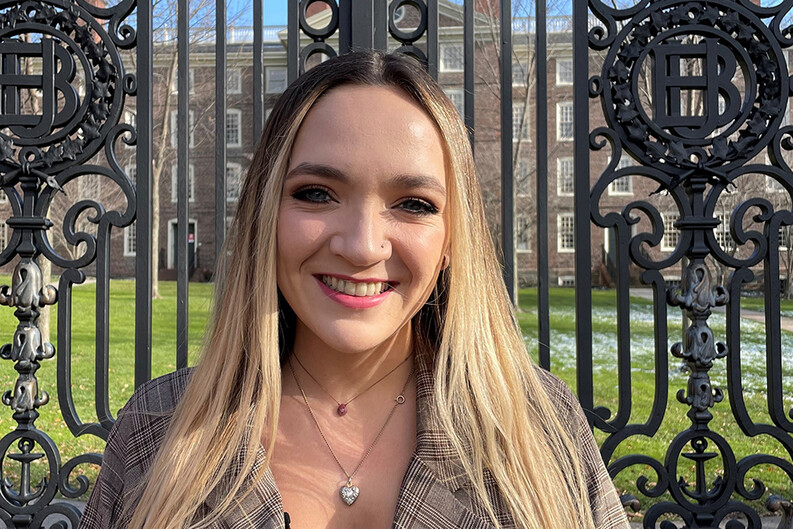Liman Summer Fellow Encounters a Familiar Housing Injustice

In addition to funding fellowships for Yale Law School graduates, the Arthur Liman Center for Public Interest Law has supported summer fellowships4 for students at several undergraduate institutions, including Brown University, since the early 2000s.
During her 2021 Liman Summer Fellowship, Hannah Ponce, now a senior at Brown, worked as an intern for the Rhode Island Center for Justice. There, she joined staff attorney Natalia Friedlander ’18, a Brown and Yale Law School graduate who began working at the center as a Resnik-Curtis Liman Fellow in 2018.
Ponce provided the following account of how she was able to help a client who faced the same kind of housing issue that she herself experienced during childhood.
In recent years, Providence has faced a dire eviction crisis. Consequently, a large proportion of the calls received by the Rhode Island Center for Justice last summer were made by low-income Providence residents seeking legal representation or advice regarding impending eviction cases. Throughout my internship, I both received and returned a number of these calls, connecting potential clients with the resources the center could offer. The other interns and I would meet virtually with the staff attorney to discuss the individual calls we had received. In these meetings, the staff attorney guided us through the intake process and ways to best aid clients while simultaneously broadening our understanding of Rhode Island housing law.
One particularly memorable moment arose while I was handling an intake call in the earlier weeks of my internship. As I worked my way through the various voicemails the center had received, I fell upon a message from a client recalling details of a housing injustice that very closely paralleled one that my own family had faced during my childhood. Taken aback by the similarities, I followed the intake process I had learned at the beginning of my internship, connecting with the client while shadowing the staff attorney as he advised them on the best legal practices to follow. Although my role in the shadowing process was that of learning from the encounter, it was a very surreal experience.
Growing up in a low-income Mexican American household in Southern California, my passion for social justice and my drive to pursue a public interest legal career have largely resulted from the legal injustices that I experienced during my childhood. As I worked with the staff attorney to resolve the legal issue the client had presented — an issue that had once impacted my own life — I experienced an extreme array of emotions. I resonated with the emotions of the client, feeling their fear, anguish, and even rage. Meanwhile, for the first time, I resonated with the role of the staff attorney as well. I felt pride and gratitude that I was in a position where I could help to protect against the legal injustices I had borne witness to in my life and in the lives of my community members.


